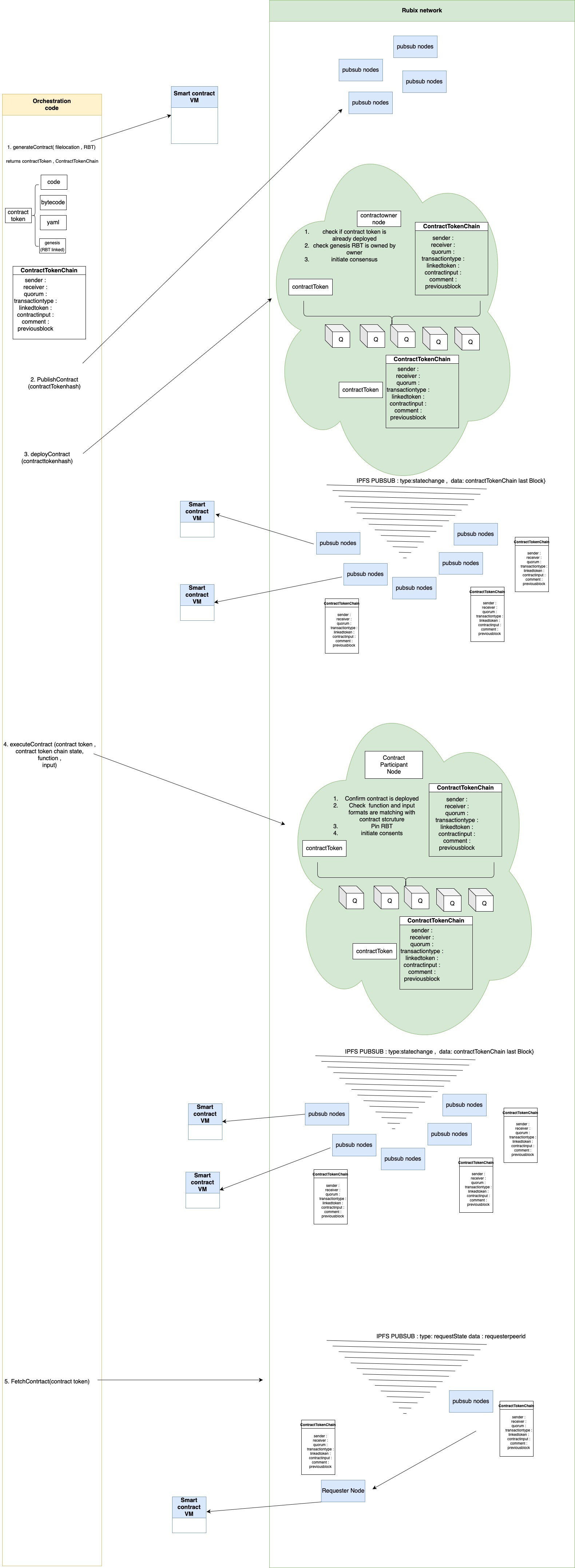Smart Contract
Smart contracts represent sophisticated business logic encapsulated in machine-readable formats, typically articulated through programming languages. These contracts are executed within a network’s nodes, operating in a deterministic, sandboxed environment.
At Rubix, we perceive smart contracts not just as mere code but as a specialized form of Non-Fungible Tokens (NFTs) possessing a dynamic state. Every invocation of a contract function leads to an update in this state, which is meticulously recorded and preserved on the Contract Token Chain. This dedicated chain furnishes an immutable ledger, ensuring transparent and tamper-proof documentation of each contract execution.

To ensure versatility and adaptability, Rubix smart contracts are crafted in prevalent web2 languages, including Rust, JavaScript, and GoLang. These contracts are subsequently executed within a WebAssembly (WASM) environment. Rubix’s architecture is strategically designed to foster enhanced adoption rates, and our choice to employ widely-recognized web2 languages significantly amplifies this objective.
If you have questions or feedback, please DM us at @rubixchain.